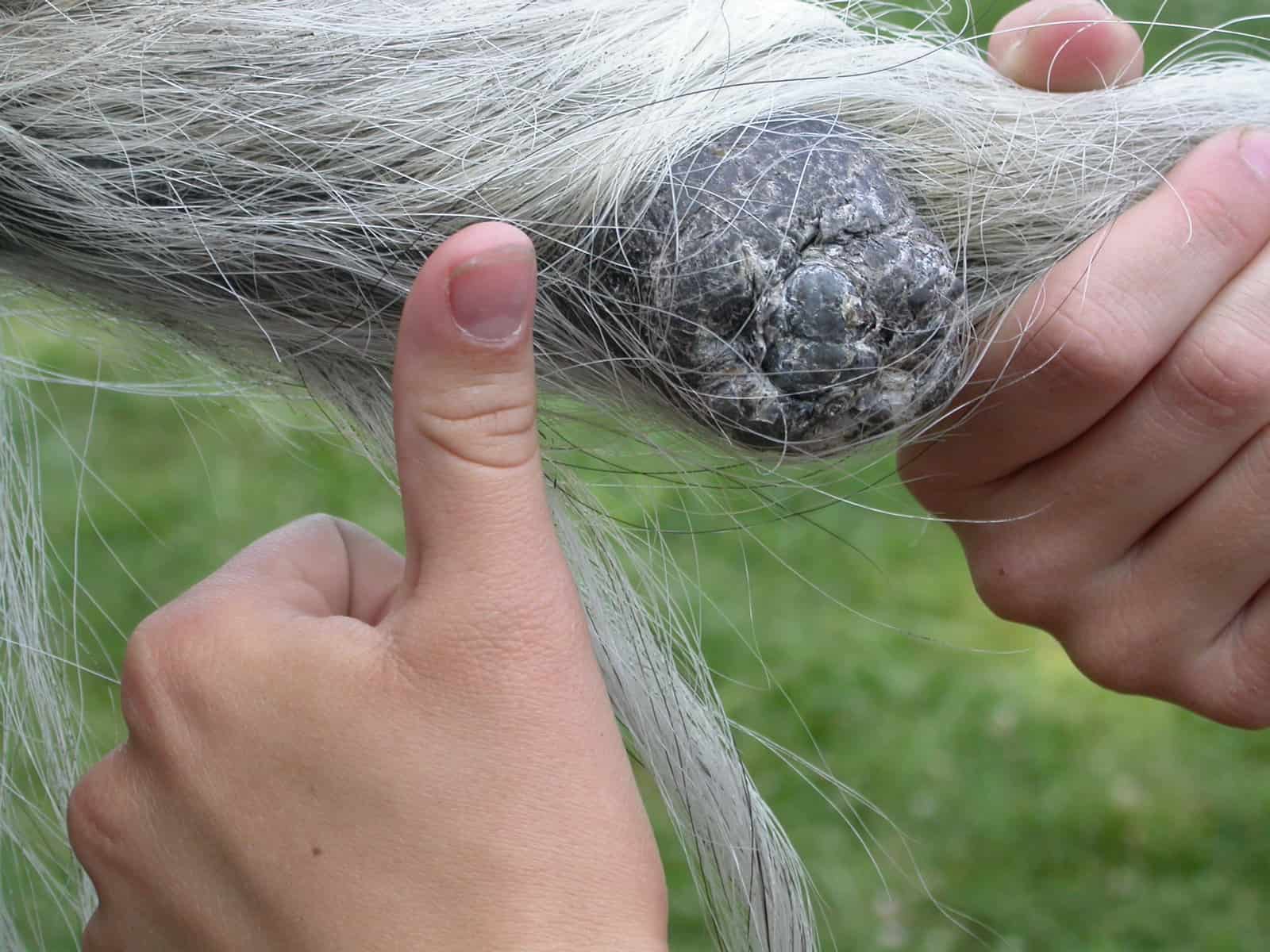Equine Melanoma Vaccines

I was like a kid in a candy shop, having just shopped for and found my horse of a lifetime. My new gray 8-year-old Arabian was perfect in almost every respect, but he came to me with a large, ulcerated cauliflowerlike mass to the left of his tailhead, oozing black tarry material.
This was back in the mid-1980s, when I was a recent veterinary school graduate, and we didn’t have many options for dealing with equine melanoma other than to take out the scalpel and get to work. After I’d excised the cutaneous (affecting the skin) lesion, all seemed well. But two years later, when loading him on the trailer I noticed an abnormal out-pouching alongside his anus as he defecated. On rectal exam I felt an orange-sized mass directly internal to where the original lesion had been. Three weeks later, on another rectal exam, I discovered that it had grown to grapefruit size. My veterinarian partner and I laid my horse down on the surgical table under anesthesia and cut it out, finding it extended deep inside along his small colon and rectum.
At that time a newly proposed melanoma treatment had surfaced: using oral cimetidine to activate one arm of the immune system—T-cells—to keep the cancer in check. Not then available as a generic drug, it was expensive. And, of course, my finicky Arabian managed to pick out all the ground-up tablets from his food unless I mixed them thoroughly with applesauce. Researchers have since studied cimetidine, only to find inconsistent results for melanoma management. I have no way of knowing if the surgical procedure did the trick or if the cimetidine helped, but my horse lived until almost 29, dying of other causes
Create a free account with TheHorse.com to view this content.
TheHorse.com is home to thousands of free articles about horse health care. In order to access some of our exclusive free content, you must be signed into TheHorse.com.
Start your free account today!
Already have an account?
and continue reading.

Written by:
Nancy S. Loving, DVM
Related Articles
Stay on top of the most recent Horse Health news with












